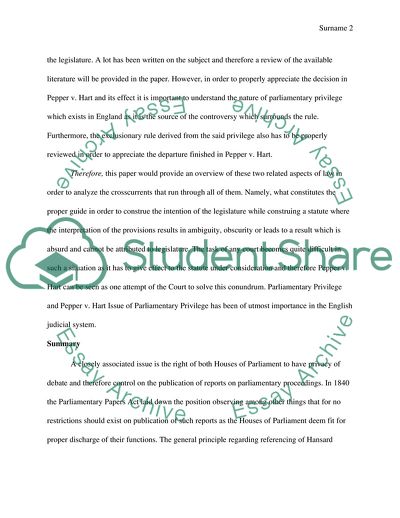Cite this document
(Law Quarterly Review 2005 Pepper vs Hart and Matters of Constitutional Coursework - 1, n.d.)
Law Quarterly Review 2005 Pepper vs Hart and Matters of Constitutional Coursework - 1. https://studentshare.org/law/1816584-law-quarterly-review-2005-pepper-v-hart-and-matters-of-constitutional-principle-aileen-kavanagh
Law Quarterly Review 2005 Pepper vs Hart and Matters of Constitutional Coursework - 1. https://studentshare.org/law/1816584-law-quarterly-review-2005-pepper-v-hart-and-matters-of-constitutional-principle-aileen-kavanagh
(Law Quarterly Review 2005 Pepper Vs Hart and Matters of Constitutional Coursework - 1)
Law Quarterly Review 2005 Pepper Vs Hart and Matters of Constitutional Coursework - 1. https://studentshare.org/law/1816584-law-quarterly-review-2005-pepper-v-hart-and-matters-of-constitutional-principle-aileen-kavanagh.
Law Quarterly Review 2005 Pepper Vs Hart and Matters of Constitutional Coursework - 1. https://studentshare.org/law/1816584-law-quarterly-review-2005-pepper-v-hart-and-matters-of-constitutional-principle-aileen-kavanagh.
“Law Quarterly Review 2005 Pepper Vs Hart and Matters of Constitutional Coursework - 1”. https://studentshare.org/law/1816584-law-quarterly-review-2005-pepper-v-hart-and-matters-of-constitutional-principle-aileen-kavanagh.


